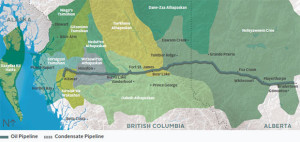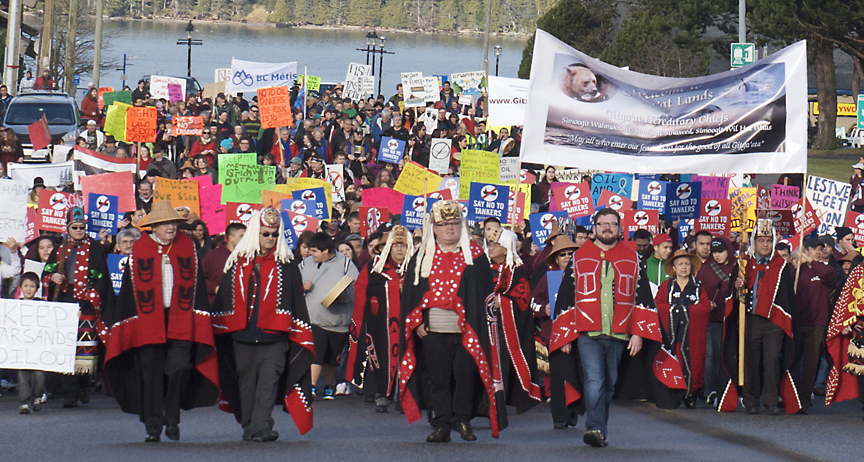First Nations Canadians who have banded together to oppose the recently approved the Enbridge Northern Gateway Pipeline that would connect Alberta with the British Columbia coast–albeit with 209 conditions–have rejected the government’s decision to proceed with the project. First Nations groups have stated that they “will take whatever measures are necessary to prevent that from happening.”
“Our coastline is not for sale to big oil, no matter how much money is on the table. There are thousands of British Colombians and Canadians who feel the same way, and who will stand with us to stop this dangerous project,” stated one of the opposing First Nations groups, the Heiltsuk First Nation.
First Nations groups, such as the Union of B.C. Indian Chiefs, First Nations Summit and B.C. Assembly of First Nations, have stated that they “unequivocally reject” the decision to approve the pipeline, and have vowed to fight the pipeline with legal and direct action.
National Program Director for Sierra Club Canada John Bennet said, “I’ve been doing this for 30 years now, and I’ve never see such strength and opposition to a project.”
Under the Canadian constitution, the government of Canada legally must consult First Nations and accommodate First Nations treaties in decisions that could impact First Nations lands and resources. First nations groups say that the government failed to consult tribal bands before approving the pipeline.
Read more: Northern Gateway Pipeline Illegal if Without Consultation with First Nations
“Our position is that before a decision can be made, there has to be a complete report in accordance with the law — and the report was flawed, so the government cannot legally make the decision,” said a staff lawyer for EcoJustice, Barry Robinson. “If the courts find we are correct, then the decision made yesterday would have to be reversed.”
“The government has moved their legal responsibility to consult with First Nations to Enbridge, and that’s a wrong move on their part,” said Tl’azt’en Nation Grand Chief Edward John.
 Enbridge’s Norther Gateway pipeline is a 730-mile (1175 km) that would carry tar sands oil from Alberta to Kitimat, a town on the British Columbia coast, where the oil would be loaded onto tankers for transport.
Enbridge’s Norther Gateway pipeline is a 730-mile (1175 km) that would carry tar sands oil from Alberta to Kitimat, a town on the British Columbia coast, where the oil would be loaded onto tankers for transport.
Enbridge spokesman Ivan Giesbrecht emailed a statement out that read that 60 percent of the First Nations population along the route of the pipeline had agreed to the project, but the challenges of the First Nations opposition are considered to be significant.
“We are the wall that Enbridge and Harper cannot pass,” said Chief Terry Teegee of the Carrier Sekani Tribal Council, and Grand Chief Stewart Philip of the Union of B.C. Indian Chiefs warned, “We will take whatever measures are necessary to prevent that from happening.”
By Day Blakely Donaldson
